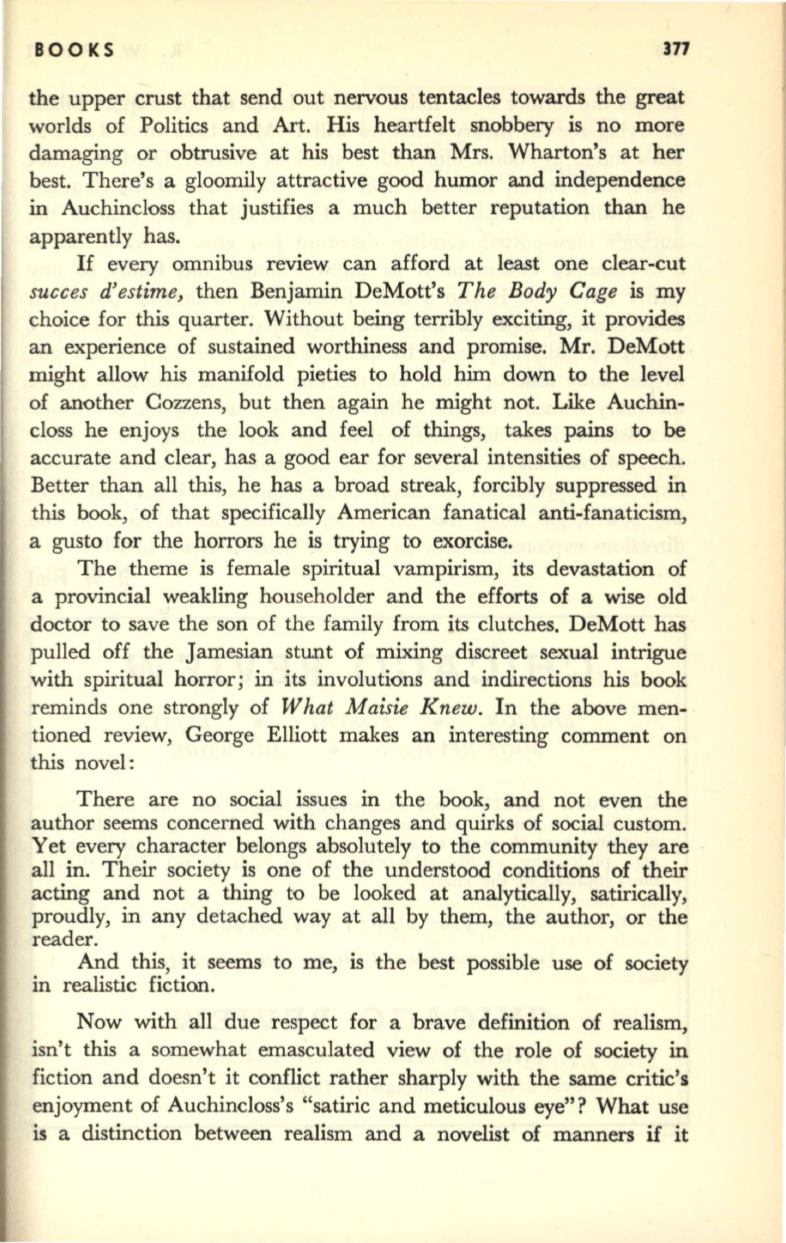
BOOKS
377
the upper crust that send out nervous tentacles towards the great
worlds of Politics and Art. His heartfelt snobbery is no more
damaging or obtrusive at his best than Mrs. Wharton's at her
best. There's a gloomily attractive good humor and independence
in Auchinc10ss that justifies a much better reputation than he
apparently has.
H every omnibus review can afford at least one clear-cut
succes d'estime,
then Benjamin DeMott's
The Body Cage
is my
choice for this quarter. Without being terribly exciting, it provides
an experience of sustained worthiness and promise. Mr. DeMott
might allow his manifold pieties to hold him down to the level
of another Cozzens, but then again he might not. Like Auchin–
closs he enjoys the look and feel of things, takes pains to be
accurate and clear, has a good ear for several intensities of speech.
Better than all this, he has a broad streak, forcibly suppressed in
this book, of that specifically American fanatical anti-fanaticism,
a gusto for the horrors he is trying to exorcise.
The theme is female spiritual vampirism, its devastation of
a provincial weakling householder and the efforts of a wise old
doctor to save the son of the family from its clutches. DeMott has
pulled off the Jamesian stunt of mixing discreet sexual intrigue
with spiritual horror; in its involutions and indirections his book
reminds one strongly of
What Maisie Knew.
In the above men–
tioned review, George Elliott makes an interesting comment on
this novel:
There are no social issues in the book, and not even the
author seems concerned with changes and quirks of social custom.
Yet every character belongs absolutely to the community they are
all in. Their society is one of the understood conditions of their
acting and not a thing to be looked at analytically, satirically,
proudly, in any detached way at all by them, the author, or the
reader.
And this, it seems to me, is the best possible use of society
in realistic fiction.
Now with all due respect for a brave definition of realism,
isn't this a somewhat emasculated view of the role of society in
fiction and doesn't it conflict rather sharply with the same critic's
enjoyment of Auchincloss's "satiric and meticulous eye"? What use
is a distinction between realism and a novelist of manners if it


